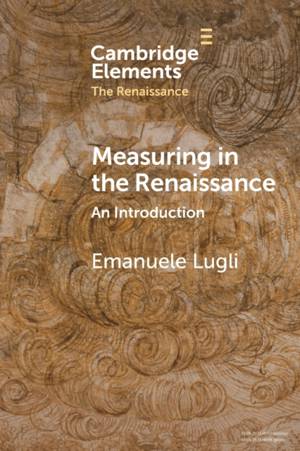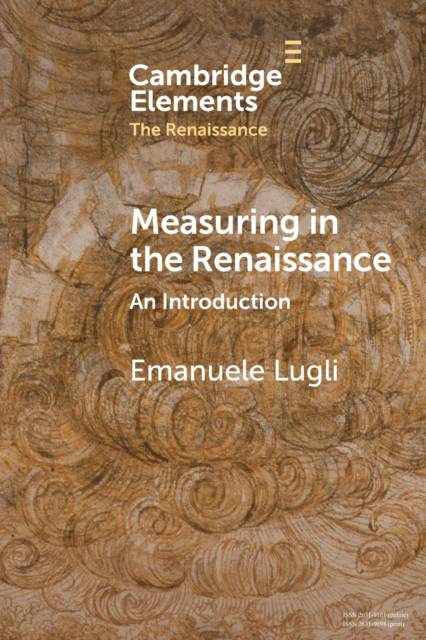
- Afhalen na 1 uur in een winkel met voorraad
- Gratis thuislevering in België vanaf € 30
- Ruim aanbod met 7 miljoen producten
- Afhalen na 1 uur in een winkel met voorraad
- Gratis thuislevering in België vanaf € 30
- Ruim aanbod met 7 miljoen producten
Zoeken
Omschrijving
During the Renaissance, measuring played a critical role in shaping trade, material production (ranging from architecture to tailoring), warfare, legal studies, and even our understanding of the heavens and hell. This study delves into the applications of measuring, with a particular emphasis on the Italian states, and traces its wide-ranging cultural effects. The homogeneization of measurements was endorsed as a means to achieve political unity. The careful retrieval of ancient standards instilled a sense of connection and ownership toward the past. Surveying was fundamental in the process of establishing colonies. This study not only examines the perceived advantages of measuring, but it also highlights the overlooked distorting aspect of this activity. Measuring was not just a neutral quantification process but also a creative one. By suppressing or emphasizing information about the material world, measuring influenced people's perceptions and shaped their ideas about what was possible and what could be accomplished.
Specificaties
Betrokkenen
- Auteur(s):
- Uitgeverij:
Inhoud
- Aantal bladzijden:
- 75
- Taal:
- Engels
- Reeks:
Eigenschappen
- Productcode (EAN):
- 9781009073974
- Verschijningsdatum:
- 3/08/2023
- Uitvoering:
- Paperback
- Formaat:
- Trade paperback (VS)
- Afmetingen:
- 152 mm x 229 mm
- Gewicht:
- 154 g

Alleen bij Standaard Boekhandel
+ 63 punten op je klantenkaart van Standaard Boekhandel
Beoordelingen
We publiceren alleen reviews die voldoen aan de voorwaarden voor reviews. Bekijk onze voorwaarden voor reviews.











